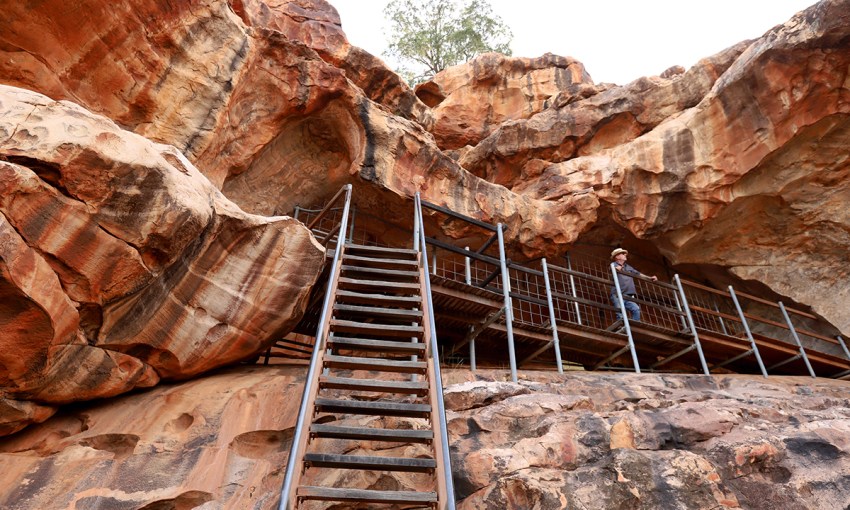From reviving a historic cultural tourism site to delivering much talked-about food and accommodation experiences, a group of dedicated locals are driving change and setting the new tourism agenda in Hawker – the hub of the Flinders Ranges.
Heading for Hawker
As the sun dips low in the sky and kangaroos graze along the Flinders Ranges Way, eight kilometres south of the town of Hawker, a ridgeline of ancient rock glows amber and gold in the fading daylight.
Under the rise of the range lies the Yourambulla Caves, a trio of caves where the Adnyamathanha people, the “rock people” of the Flinders Ranges, once took shelter and hunted for food.
Tucked away inside all three are paintings in deep ochre and manganese of symbols, animal tracks, waterholes — the visual language of the “Adnamatna”.
“It’s a very important site; the beginning of our people,” says Pauline McKenzie. Pauline, who once ran popular cultural tours at the site, remembers the profound effect the cave experience once had on its many visitors.
“They were blown away,” she said. “To see it through Aboriginal eyes, you’ll see it differently.
“Once you come up here, you knock on the door, but it turns the handle to walk on Country, to open up the whole Flinders Ranges.”
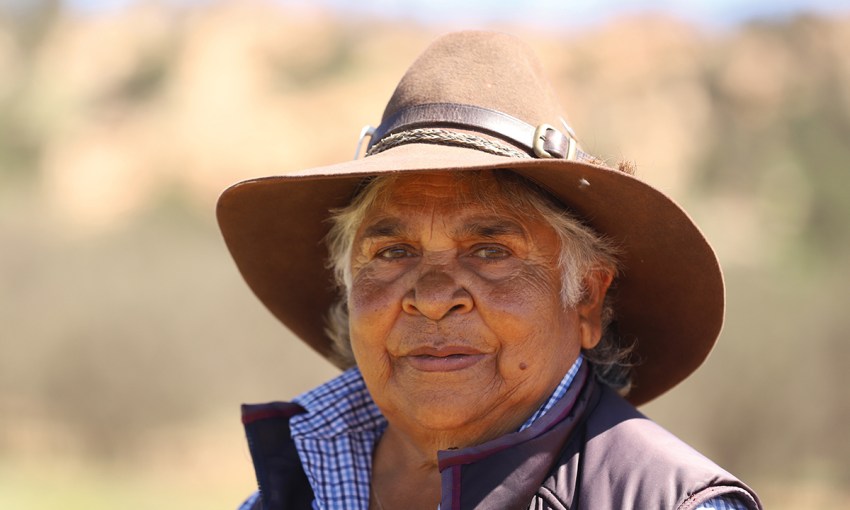
But the tourists have been long gone, the access road blocked by signage. For 10 years, the historic site, situated on private land, has been closed due to public liability insurance costs.
Describing the caves as “a site for future generations”, Pauline is one of a dedicated group of Hawker residents pushing to reopen the caves to the public, including Hawker Community Development Board Vice-Chair Robert Webb.
“People come from miles around expecting to see the Yourambulla Caves and they’re disappointed to find them closed,” says Robert.
“International travellers are particularly interested in the Aboriginal history of this land. It’s a special place. For me it’s a sense of stillness and something so ancient.”
To bring the Yourambulla Cave site up to modern tourism standards, the group is currently seeking funding for major restorative and structural works, including interpretative signage, plans for the ageing viewing platforms and upgrading the access road, carpark and paths leading up to the site.
A website and app will explain the cultural significance of the site and link to Hawker’s other main tourism sites and local businesses. A fourth-generation Hawker local, Robert is dedicated to bringing about change in the town he grew up in, believing the redeveloped cave site would be a major tourism drawcard for the entire region.
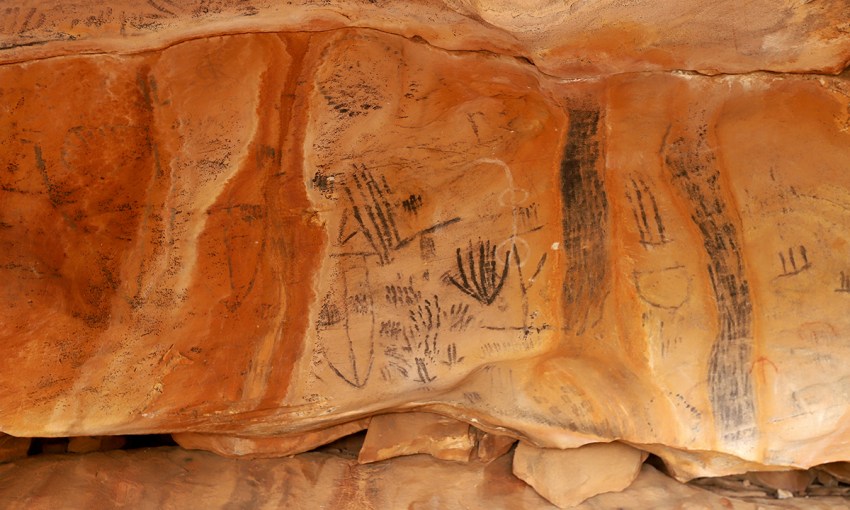
Home to significant indigenous sites such as Sacred Canyon and Arkeroo Rock, cultural tourism experiences are big business for the Flinders Ranges, which will see $1 million in State Government funding to improve visitor infrastructure and develop experiences in partnership with traditional owners in coming years.
However, the land around Hawker and its future use and preservation has been a divisive subject. In 2015, the Federal Government’s plan to locate a nuclear waste dump near the town of 340 people raised strong debate, differing opinions and pitted neighbour against neighbour.
While some believed the town needed the jobs and investment, the “no” camp was adamant the dumpsite would destroy the town’s cultural heritage and tourism prospects.
In 2018, a vote of more than 1600 residents in the Flinders Ranges Council showed 52 per cent of residents were against locating the dumpsite near Hawker.
With no broad community support to back the proposal, the Federal Government shifted its efforts to a site near Kimba on the Eyre Peninsula. After dividing the town for so long, Hawker locals now consider the issue as belonging to the past.
“We’ve moved on,” says Robert, simply. “Now our focus is on tourism and getting people to linger longer in the Hawker area.”
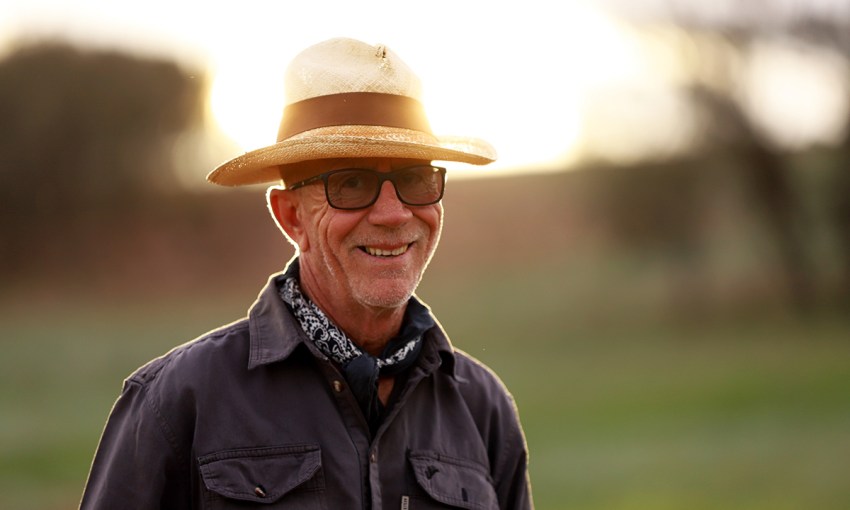
Sharing long wooden benches with fellow travellers, with the sun warm on your shoulders and a coffee and quandong tart in front of you, lingering is easy at the Flinders Food Co.
Since opening in 2018, the thriving cafe has delivered the town some major stopping power, drawing in keen food lovers from across the Flinders Ranges and beyond.
Owned and run by Doogal Hannagan and Louise Lynch, the young couple returned home from their own international travels with a mission: to bring city-quality food to the Flinders Ranges.
“We love food,” says Louise. “We travelled the world based on restaurants we wanted to visit and food we wanted to eat.”
For head chef Doogal, it’s all about championing South Australian produce – fresh, local and native. “We want something there for people to enjoy but also maybe to leave their comfort zone,” says Doogal.
For breakfast, you can try the house-made wattle seed and lemon myrtle muesli, while a popular choice for dinner guests is the “sustainable sausage”, organic lamb sausages made on Wilpoorina Station, seasoned with native mountain pepper. Of course, it’s always a good time for the small but intense flavours of the quandong tart, the native fruit plucked from the tree in their back yard.
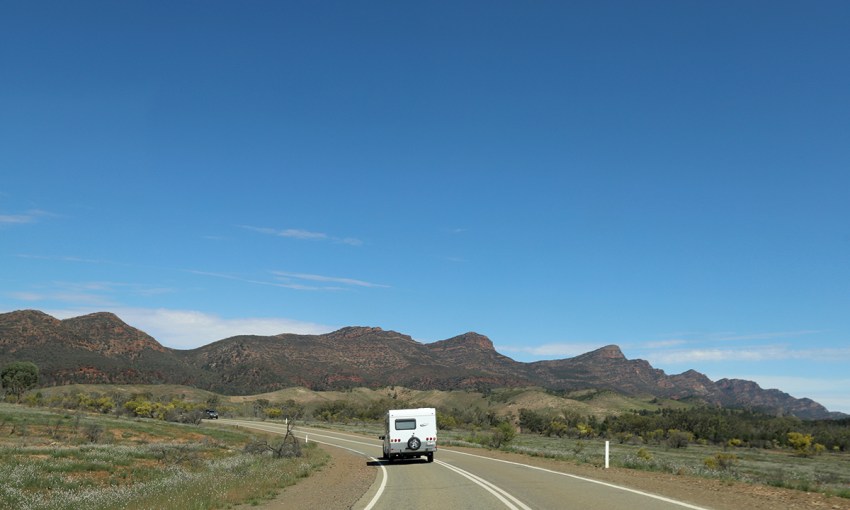
“People walk in here and say, ‘Are they ready yet?’,” laughs Doogal.
In just a few years, the cafe has quickly forged its place in the small town, becoming not only a destination for tourists but the meeting place for locals.
“We’ve become the heart of Hawker,” says Louise. “The Flinders Food Co is part of their day and we love that.”
After their busiest year and a well-received foray into fine dining, the couple has big plans for 2021, including extensive renovations, perhaps a new tapas menu and events in their new beer garden.
With a shout of “congratulations!” at the couple from a passing car, it becomes clear the new year will be a big one for other reasons too. Louise smiles, sharing the news a “new crew member” will be joining the Flinders Food Co family in April.
On the Hawker community grapevine, news spreads fast.
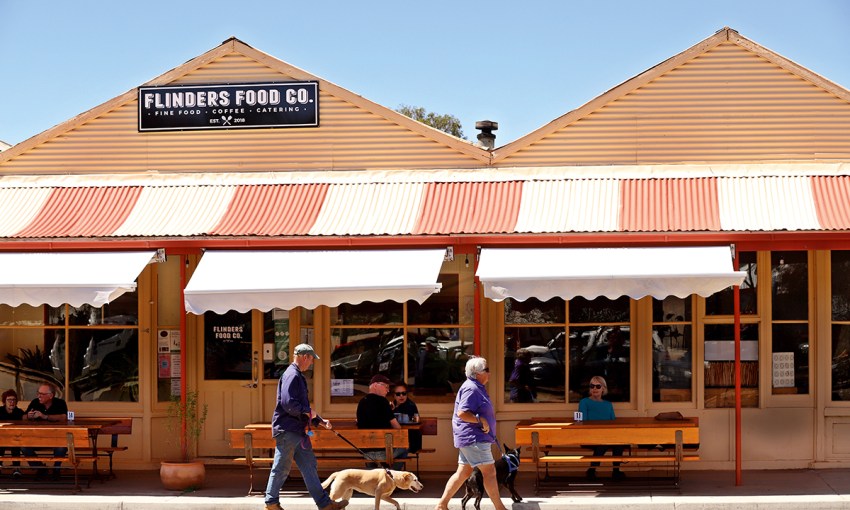
At the Flinders Bush Retreats, a farm stay near Hawker, 2020 has been a year of extremes, swinging from a flurry of pandemic-related cancellations early in the year to an ever-ringing phone and waitlist.
“Demand has been so high – everyone wants to be out here,” says Sharon McInnis.
Across the Flinders Ranges, from Quorn to Parachilna, phones have been ringing off the hook with travellers seeking escape in the wide-open spaces of South Australia’s outback – the perfect antidote to lockdown.
“People are all Zoomed out,” laughs Sharon. “They want a break. They’re seeking to switch off and get back to nature.”
Sharing family life on their 11,000-acre Willow Plains property is what Sharon and husband Allen built their accommodation business on in 2013, when they sought to diversify the highs and lows of farming through tourism.
Offering a choice of unique accommodation, including a remote eco-tent experience and two self-contained homes for up to eight people, including The Quarters and the renovated 100-year-old Mt Scott Homestead, the McInneses built their accommodation based on their own holiday needs and wants.
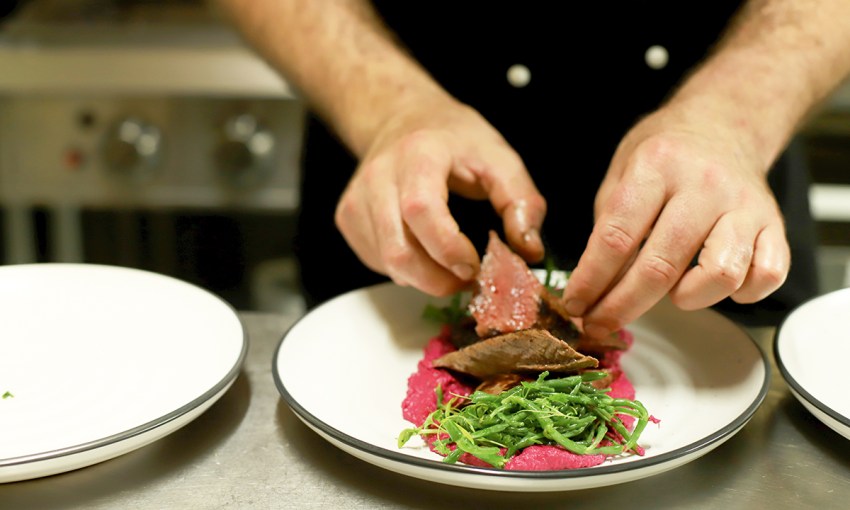
“We noticed a gap, between the top of the range luxury accommodation and old shearers quarters but we saw there was not a lot of self-contained accommodation suitable for families,” says Sharon.
Each property is designed to “bring the Australian bush in”, to tread lightly on the landscape it is designed to showcase.
Setting up for a couples stay in the eco-tent in the secluded Willow Waters Gorge, Sharon pops a vase of fresh wildflowers on the table. It’s this attention to detail which won the business the Best Self-contained Accommodation Award at the 2019 South Australian Tourism Awards.
Understanding how their actions now will impact future generations is important to Sharon, a mother of five.
“Our family first settled on this land in 1878 and today, the sixth generation live, work and play on the same land,” she says.
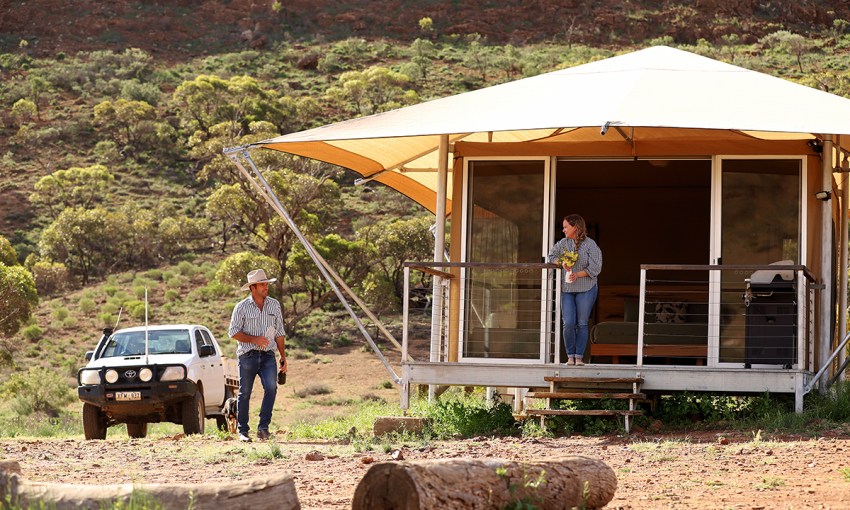
A board member of Flinders Ranges and Outback South Australian Tourism, the latest campaign educating travellers to “leave no trace” is a timely message, says Sharon.
“The Flinders is so majestic and so natural and to be able to enjoy that without leaving your mark is so important.
“It’s about looking after the land, so the land looks after us in generations to come.”
This story first appeared in the Dec 2020/Jan 2021 issue of SALIFE magazine.



